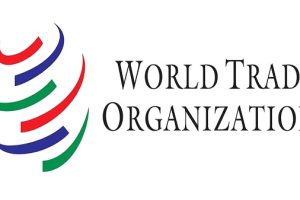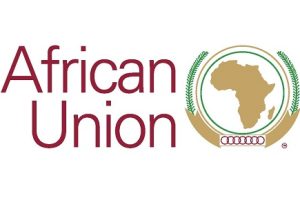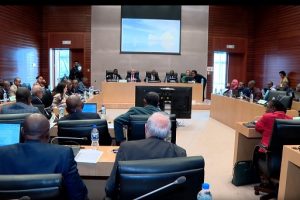Some argue that nowhere has America blundered its foreign policies more than it did in Africa. These foreign policy blunders coupled with the ongoing domestic political and social tensions have caused the superpower nation to enter into what analysts describe as, a state of declinism.
The invasion of Iraq and Libya, the silence over the Rwandan genocide, the Afghanistan fiasco, the violent end of the Trump administration, and now the condemned destructive interference in Ethiopian politics and so on serve as symptoms of the declinism of America’s superpower status.
So, America is in decline. And it does not have anyone to blame but its hypocritical colonial-style policies, moronic leadership, lobbyist-driven politics. Therefore, the question now is not whether America is in decline or not. It is about whether it would re-invent itself to rejuvenate its stature as a superpower with fresh thinking, rational foreign policies, and the new blood of leadership. Thus, America needs to reset its policy directions and act in time to build itself as a reliable and strategic development and security partner to Africa.
Unfortunately, the American government has time and again proven its self as an unreliable partner to Africa, and to Ethiopia in particular. In their over century-old relations as strategic partners, America has betrayed Ethiopia on several occasions. What is worse is America did it when Ethiopia was desperate for a friend to lean on.
A few years before being overthrown by a military junta [the Derg], Emperor Haile Selassie was in the White House in 1969 seeking a backup for his country beleaguered by several threats. Sadly, the then US National Security Advisor, Kissinger, advised his boss, President Nixon, not to provide military assistance to Ethiopia. And a few years later, all what the emperor warned happened in Ethiopia: the coup d’etat, the Somalia war, the intensification war in the northern part of the country.
When Somalia’s dictator, Siad Barre, invaded the country, pushing 700 km into Ethiopia’s territory, the US left Ethiopia to its fate by denying the shipment of weapons Ethiopia purchased with its own money. That dark part of Ethio-American relations history is in stark contrast to the American officials rhetoric that stresses America always wants to see Ethiopia’s territorial integrity and sovereignty maintained.
After the 9/11 attacks, one of the main targets of America’s foreign policy is the fight against terrorism. And Ethiopia was one of America’s foremost reliable African partners in this regard. Numerous Ethiopian soldiers have paid the ultimate price fighting for America’s global counter-terrorism. But when local terrorist groups threatened Ethiopia’s national security, the Americans failed to stand by Ethiopia, as a loyal ally should.
And to add insult to injury, the Americans became undercover supporters of the terror groups and subjected Ethiopia to a series of sanctions aimed to paralyze its economy. That is a betrayal of the highest order and a blunder on the American foreign policy that would cost them dearly eventually. Losing the confidence and trust of the main ally in the Horn of Africa is tantamount to losing grounds for protecting one’s national interest in the Horn.
The bankruptcy of the American foreign policy towards Africa has become a subject of discussion not only for African scholars and critics of western imperialism. Even analysts in the west on both sides of the Atlantic have begun discussing it. A western policy analyst recently wrote an article criticizing America’s diplomatic shortfalls in Africa “The U.S. policy on Africa is down, but it is certainly not out. Rather than trying to compete on fields where China is better established, it can play to its own strengths. The United States needs to consider what its own route for cooperation might look like in the years to come. America needs a policy toward Africa that plays to its strengths and recognizes the importance of relationship-building,” he stated.
Lately, disgruntled voices from the members of the Biden Administration itself and US senators have begun to be heard. In what seemed to be veiled criticism against the comments made by a US military commander last week, who hinted at the likelihood of military intervention in Ethiopia, the Special US Envoy to the HOA warned against any military actions that could escalate the crisis in Ethiopia. Feltman stressed that violence and military intervention is not the way to go forward.
Similarly, the American Senator, Sen. Inhofe, openly denounced the misguided US policy toward Ethiopia saying: “it was inappropriate for the United States to treat this situation in Ethiopia with both sides being equal when clearly they are not. One side is a democratically elected government, the other a disgruntled faction reacting with violence because they are no longer in power, it is a terrorist group. We [the US government] should be talking to the [Ethiopian] Prime Minister about how we can help him restore peace, not slapping punitive sanctions on his government,” he said.
If Americans continue to pursue their outdated hawkish way of engaging with African states, if the spirit of partnership is more like master-servant relation, then sooner rather than later, they will be out of the game of the Geopolitics of the Horn. And that would mean a further downward spiral in their decline as the world’s superpower. Losing the Horn implies losing influence over one of the most strategic geographical locations, which encompasses the vital link in the maritime trade route between the Mediterranean Sea and the Indian Ocean.
Americans should get used to the reality that they can no longer be the only dominant player in Africa. They should abandon their plots and conspiracies to chase their fierce competitors, the Chinese, out of Africa by sponsoring insurrection and instability against African states that have amicable partnerships with China and other developed economies.
Americans should revisit their foreign policy toward Africa to make it more appropriate to the Africa of the 21st century. – a sovereign free Africa that can make its own choices and write its own prescriptions to medicate its conditions. Like the successful Chinese, Americans should avoid meddling in the internal affairs of Africans and should not tell them how to handle their home affairs. They should respect and give due attention to the values, the will, the voices of the African people. It would have been better for the Americans to analyze and the causes of the #No More campaign, rather than trying to ignore and block it.
The Americans or the western world, in general, should investigate why they are way behind the Chinese in making fruitful and long-term solid partnerships with Africans. As the Sino-African relation gets from strength to strength, the Afro-American relations are waning. As the Chinese announced a tax-free incentive for African products, America is suspending similar incentives it offered to some African states. While the Chinese are ingratiating themselves in Senegal among African leaders carving out strategic plans for joint development endeavors, Americans are being denounced by millions of Africans over their disastrous policies and activities in the continent that did more harm than good to the African people.
Without removing the Chinese, there is still more than enough space for the Americans to forge a mutually beneficial partnership with Africans. The Americans must accept the fact that they have many things to learn from the Chinese foreign policy towards Africa, which is based on mutual respect and recognition of the sovereign rights of African states. They must act now before it is too late starting with revising their failed policy.
BY SOLOMON WASSIHUN
THE ETHIOPIAN HERALD DECEMBER 8/2021





